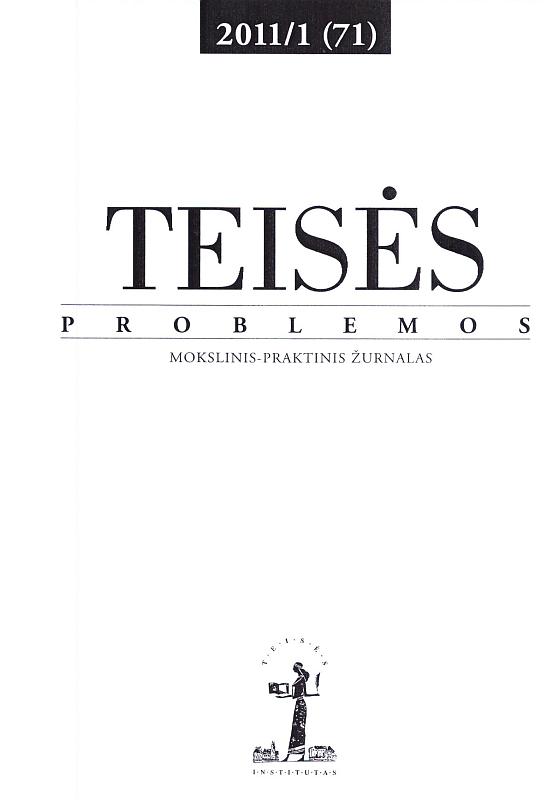Informuoto paciento sutikimo pažeidimo atvejai
The Cases of Infringement of Patient's Informed Consent
Author(s): Modestas SriubasSubject(s): Law, Constitution, Jurisprudence, Civil Law, Ethics / Practical Philosophy, Health and medicine and law
Published by: Lietuvos teisės institutas
Summary/Abstract: The cases of infringement of patient’s informed consent that can cause civil liability, do not receive sufficient attention in Lithuanian doctrine. The main objective of this paper is the theoretical analysis of cases, civil liability could be applied to an infringement of patient’s informed consent. Legal relations arising between the parties in the cases where patient’s informed consent is applied are discussed and defined in this paper, as well as legal obligation binding the parties is analysed. Topical aspects of application of the civil liability determined by the infringement of patient’s informed consent are discussed by evaluating them through the composition of patient’s informed consent and Lithuanian legislation regulating the patient’s informed consent. The interpretations on Lithuanian judicial practice as well as theoretical and practical issues of its application are being addressed by the author. Basic methods of scientific research and legal interpretation such as linguistic, historical, comparative, systematic, logic and data analysis are being applied in this paper. In conclusion it is stated that the legal relations of personal health care are legal relations evolving between patient and health care institution, when patient seeks or gets personal health care and institution commits to provide these services and its quality. Civil liability for violation of patient’s consent can occur to health care institution not only because of doctor’s omission; it can also be the fault of health care institution as health care legal relations party, for not complying with statutory obligations. In Lithuania, when this obligation is infringed, civil liability is applied. It was found summarising results of the research that Lithuanian courts do not pay enough attention to personal health care institution or its employees unlicensed activity cases. Special attention should be paid to evaluation of cases when patients are inadequately informed on risks (complications) of planned procedures. Though Lithuanian law sets obligation for competent professional of personal health care institution to inform patient about known, frequently and rarely occurring complications related to patient’s condition, the complication criteria (eg. importance) is still missing from the decisions of Lithuanian courts.
Journal: Teisės problemos
- Issue Year: 2011
- Issue No: 71 (1)
- Page Range: 29-58
- Page Count: 30
- Language: Lithuanian

